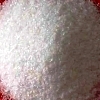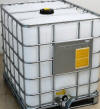Search for the supplies that you need here:
DMF Support and Documentations Available | |
 WHO-GMP Certified Good Manufacturing Practice Certified by World Health Organization |  WC, Written Confirmation for Active Substance to be imported into European Union (EU). |
Potassium Gluconate USP FCC Food Grade Manufacturers
Anmol Chemicals is a manufacturer supplier exporter of Potassium Gluconate and it offers materials as per IP BP EP Ph Eur USP NF JP FCC Food Grade as per the the latest monograph at best prices. Anmol Chemicals Group, established in 1976, is the pioneer manufacturer of Specialty Chemicals, Pharmaceutical Excipients, Some API, Food Chemicals in India. Anmol Chemicals Group has manufacturing facilities spread across Western India, representatives in Houston, Chicago USA and Dubai, UAE. We also have toll manufacturing units for processing chemicals in a few countries around the world. We make IP, BP, EP, USP, NF, Ph. Eur., JP, FCC or Food Grade, Analytical Reagent Grade, LR or Laboratory Reagent Grades and Pure Grades of various chemicals. All our items are analyzed to meet the required standards. We can supply the product in grams for your laboratory trial and in tons for your plant scale jobs.
We manufacture Bulk Drugs / API, Excipients, Pharmaceuticals (IP BP USP NF Ph Eur EP JP), Specialty Chemicals (Pure/Reagent), Mineral Fortifiers (FCC). Our manufacturing facility is FDA approved and GLP, cGMP, ISO9001, ISO14001, ISO/IEC 17025, ISO22000, FSSC 22000, ISO45001, FSSAI, Kosher, HALAL, COPP, WHO-GMP certified and Written Confirmation (WC) is available. Solid materials can be customized for particle size, shape, and bulk density. We observe WHO Good Manufacturing Practices and Good Laboratory Practices. We are a government-recognized STAR Export House and "Authorised Economic Operator (AEO)" per Indian Customs.
All technical documents and DMF support available.
Potassium Gluconate SDS of Manufacturers

Synonyms: D-Gluconic acid monopotassium salt
CAS Number: 299-27-4 (anhydrous), [35398-15-3 (monohydrate)], Molecular Weight: 234.25, Chemical Formula: C6H11KO7, EINECS EC Number: 206-074-2, FEMA: ----,
Potassium Gluconate USP Grade Specifications
C6H11KO7(anhydrous) -- 234.25
d-Gluconic acid, monopotassium salt.
Monopotassium d-gluconate -- CAS 299-27-4
Monohydrate 252.26 -- CAS 35398-15-3
Potassium Gluconate is anhydrous or contains one molecule of water of hydration. It contains not less than 97.0 percent and not more than 103.0 percent of C6H11KO7, calculated on the dried basis.
Label it to indicate whether it is anhydrous or the monohydrate.
Identification—
A: Infrared Absorption.
B: It responds to the flame test for Potassium.
C: It responds to Identification test B for Gluconate under Calcium Gluconate.
Loss on drying— Dry it in vacuum at 105C for 4 hours: the anhydrous form loses not more than 3.0% of its weight, and the monohydrate loses between 6.0% and 7.5% of its weight.
Heavy metals— Dissolve 1 g in 10 mL of water, add 6 mL of 3 N hydrochloric acid, and dilute with water to 25 mL: the limit is 0.002%.
Reducing substances— Transfer 1.0 g to a 250-mL conical flask, dissolve in 10 mL of water, and add 25 mL of alkaline cupric citrate TS. Cover the flask, boil gently for 5 minutes, accurately timed, and cool rapidly to room temperature. Add 25 mL of 0.6 N acetic acid, 10.0 mL of 0.1 N iodine VS, and 10 mL of 3 N hydrochloric acid, and titrate with 0.1 N sodium thiosulfate VS, adding 3 mL of starch TS as the endpoint is approached. Perform a blank determination, omitting the specimen, and note the difference in volumes required. Each mL of the difference in volume of 0.1 N sodium thiosulfate consumed is equivalent to 2.7 mg of reducing substances (as dextrose): the limit is 1.0%.
Assay—
Potassium stock solution— Dissolve 190.7 mg of potassium chloride, previously dried at 105C for 2 hours, in water. Transfer to a 1000-mL volumetric flask, dilute with water to volume, and mix. Transfer 100.0 mL of this solution to a 1000-mL volumetric flask, dilute with water to volume, and mix. This solution contains 10 µg of potassium (equivalent to 19.07 µg of potassium chloride) per mL.
Standard preparations— To separate 100-mL volumetric flasks transfer 10.0, 15.0, and 20.0 mL, respectively, of Potassium stock solution. To each flask add 2.0 mL of sodium chloride solution (1 in 5) and 1.0 mL of hydrochloric acid, dilute with water to volume, and mix. The Standard preparations contain, respectively, 1.0, 1.5, and 2.0 µg of potassium per mL.
Assay preparation— Transfer about 180 mg of Potassium Gluconate, accurately weighed, to a 1000-mL volumetric flask, add water to volume, and mix. Filter a portion of the solution. Transfer 5.0 mL of the filtrate to a 100-mL volumetric flask, add 2.0 mL of sodium chloride solution (1 in 5) and 1.0 mL of hydrochloric acid, dilute with water to volume, and mix.
Procedure— Concomitantly determine the absorbances of the Standard preparations and the Assay preparation at the potassium emission line of 766.5 nm, with a suitable atomic absorption spectrophotometer equipped with a potassium hollow-cathode lamp and an air–acetylene flame, using water as the blank. Plot the absorbance of the Standard preparation versus concentration, in µg per mL, of potassium, and draw the straight line best fitting the three plotted points. From the graph so obtained, determine the concentration, in µg per mL, of potassium in the Assay preparation. Calculate the weight, in mg, of C6H11KO7 in the Potassium Gluconate taken by the formula:
20C(234.25 / 39.10)
in which C is the concentration, in µg per mL, of potassium in the Assay preparation, 234.25 is the molecular weight of potassium gluconate, and 39.10 is the atomic weight of potassium.
Potassium Gluconate FCC Food Grade Specifications
D-Gluconic Acid, Monopotassium Salt; Monopotassium DGluconate
C6H11KO7 -- Formula weight, anhydrous 234.25
C6H11KO7-H2O -- Formula weight, monohydrate 252.26
CAS: anhydrous 299-27-4
CAS: monohydrate 35398-15-3
DESCRIPTION
Potassium Gluconate occurs as a white or yellow-white, crystalline powder or granules. It is anhydrous or the monohydrate. It is freely soluble in water and in glycerin, slightly soluble in alcohol, and insoluble in ether.
REQUIREMENTS
Indicate whether it is anhydrous or the monohydrate.
Identification:
A. A sample responds to the flame test for Potassium.
B. Dissolve a quantity of sample in water, heating in a water bath at 60C if necessary, to obtain a Test Solution containing 10 mg/mL. Similarly, prepare a Standard Solution of USP Potassium Gluconate Reference Standard in water, diluting to 10 mg/mL. To prepare a Spray Reagent, dissolve 2.5 g of ammonium molybdate in about 50 mL of 2 N sulfuric acid in a 100-mL volumetric flask, add 1.0 g of ceric sulfate, swirl to dissolve, dilute with 2 N sulfuric acid to volume, and mix. Apply separate 5-L portions of the Test Solution and the Standard Solution on a suitable thin-layer chromatographic plate, coated with a 0.25-mm layer of chromatographic silica gel, and allow to dry. Develop the chromatogram in a solvent system consisting of a 50:30:10:10 mixture of alcohol, water, ammonium hydroxide, and ethyl acetate until the solvent front has moved about three-fourths of the length of the plate. Remove the plate from the chamber, and dry at 110C for 20 min. Allow to cool, and spray with Spray Reagent. After spraying, heat the plate at 110C for about 10 min. The principal spot obtained from the Test Solution corresponds in color, size, and Rf value to that obtained from the Standard Solution.
C. The infrared absorption spectrum of a mineral oil dispersion of the sample, previously dried, exhibits relative maxima at the same wavelengths as those of a similar preparation of USP Potassium Gluconate Reference Standard.
Assay: Not less than 98.0% of C6H11KO7, calculated on the dried basis.
Lead: Not more than 2 mg/kg.
Loss on Drying: Anhydrous: Not more than 3.0%; Monohydrate: Between 6.0% and 7.5%.
Reducing Substances: Not more than 1.0%.
Keywords: D-Gluconic acid monopotassium salt, Monopotassium D-Gluconate, Potassium Gluconate Anhydrous Monohydrate IP BP Ph Eur EP USP Analytical Reagent FCC Food Grade CAS Number 299-27-4 anhydrous 35398-15-3 monohydrate Manufacturer Supplier Exporter Monograph Uses Chemical Molecular Formula Weight.



Manufacturer Supplier Exporter
ANMOL CHEMICALS Private Limited
Representatives in Houston, Chicago and New York, USA
TEL: (OFF) +91 22 23726950, +91 22 23774610, +91 22 23723564
Taloja Navi Mumbai, Banglore, INDIA
e-mail: info@anmol.org
Copyright and Usual Disclaimer is Applicable
Last updated 27-oct-25
Exporters to USA, Canada, UAE, Kuwait, Qatar, Gautemala, Tunisia, Europe, South Africa, Bangladesh, Sri Lanka, Tanzania, Kenya, Egypt, Iraq, Turkey, Israel, Vietnam, Nigeria, Uganda, Brazil, Chile, Argentina, Dubai, UAE, Saudi Arabia, Cameroon, Mexico, Brazil, Chile, Argentina, Korea, Thailand, Malaysia, Indonesia, Jakarta, Australia, China, Germany, France, etc.
Representatives in New York, Houston - Texas, Chicago - Illinois, Los Angeles.
All products are Sold for Industrial and Laboratory Use only.
Fast Selling IP BP Ph Eur EP USP NF JP Analytical Reagent FCC Food Grades of Chemicals by Anmol Chemicals
Ammonium Persulfate --- Acetic Acid Glacial --- Aluminum Chloride --- Ammonium bicarbonate --- Benzyl Alcohol --- Butylated Hydroxyanisole --- Butylated Hydroxytoluene --- Boric Acid --- Calcium Butyrate --- Calcium Chloride --- Calcium Hydroxide --- Calcium Lactobionate --- Calcium Saccharate --- Carbamide Peroxide --- Calcium Oxide --- Calcium Sulfate --- Chromic Chloride --- Fumaric Acid --- Magnesium Butyrate --- Magnesium Chloride --- Magnesium Sulfate --- Malic Acid --- Maleic Acid --- Manganese Chloride --- Manganese Sulfate --- Octyldodecanol --- Oleic acid --- Phenylethyl Alcohol --- Propylene Carbonate --- Potassium Hydroxide Pellets --- Potassium Alum --- Selenious Acid --- Sodium Acetate --- Sodium Bromate --- Sodium Selenite --- Sodium Perborate --- Sodium Hydroxide --- Sodium Sulphate --- Sodium Sulfide --- Sodium Thiosulfate --- Urea --- Zinc Chloride --- Zinc Sulphate ---
Potassium Gluconate
USP FCC Food Grades Manufacturers



















